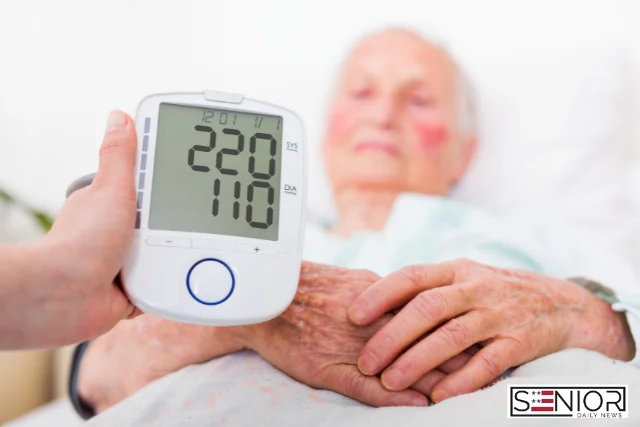High Blood Pressure Guidelines Updated: What the AHA/ACC Wants You to Know

High blood pressure is more than just a number on your health chart—it’s a major risk factor for serious conditions like heart disease, stroke, and even dementia. The latest AHA/ACC guidelines provide clearer direction on what your blood pressure levels mean and how to take action early. If you’re living with high blood pressure, making lifestyle changes and working with your healthcare provider can protect your heart and brain health in the long run.
1. High Blood Pressure and Brain Health
New research confirms that uncontrolled high blood pressure raises the risk of cognitive decline and dementia. Lowering your numbers now helps safeguard your memory and thinking ability later in life.
2. Heart Conditions Linked to Hypertension
Hypertension is the leading cause of stroke and is strongly tied to coronary artery disease, heart failure, and atrial fibrillation (AFib). Keeping your blood pressure in check means lowering your risk of these life-threatening conditions.
3. High Blood Pressure During Pregnancy
High blood pressure can also develop during or after pregnancy, sometimes as preeclampsia—a dangerous complication. Monitoring your blood pressure before, during, and after pregnancy is essential for protecting both you and your baby’s health.
New Blood Pressure Categories in Pregnancy:
- Non-Hypertensive: Less than 140/90 mm Hg
- Hypertension in Pregnancy: 140/90 mm Hg or higher
- Severe Hypertension: 160/110 mm Hg or higher (seek medical care immediately)
Symptoms such as severe headache, vision changes, chest pain, or swelling require urgent attention—call 911 if they occur.
4. What Counts as Normal Blood Pressure?
According to the new guidelines, normal blood pressure means:
- Systolic (top number): less than 120 mm Hg
- Diastolic (bottom number): less than 80 mm Hg
Anything higher may require lifestyle changes or treatment.
5. Recognizing a Hypertensive Emergency
If your systolic rises above 180 or your diastolic exceeds 120, and you experience chest pain, shortness of breath, numbness, or vision changes, call 911 right away. These can be signs of a life-threatening hypertensive crisis.
6. Blood Pressure Categories for Adults
- Normal: <120/<80 mm Hg
- Elevated: 120–129/<80 mm Hg
- Stage 1 Hypertension: 130–139 or 80–89 mm Hg
- Stage 2 Hypertension: 140+ or 90+ mm Hg
- Severe Hypertension: >180/>120 mm Hg (without symptoms)
- Hypertensive Emergency: >180/>120 mm Hg (with symptoms)
7. Anyone Can Develop High Blood Pressure
From children to seniors, high blood pressure can affect anyone. That’s why regular check-ups are so important.
8. How to Get an Accurate Reading
For the best results:
- Sit in a chair with back support
- Keep both feet flat on the ground
- Support your arm at heart level
- Stay still and avoid talking during the test
9. Lifestyle and Nutrition for Lowering Blood Pressure
- Reduce Sodium: Aim for less than 2,300 mg daily, ideally 1,500 mg or less.
- Eat More Fruits & Vegetables: A colorful, balanced diet helps regulate blood pressure.
- Limit Alcohol: Less alcohol means lower blood pressure.
- Maintain a Healthy Weight: Even a 5% weight loss can lower your risk. For example, losing just 9 pounds out of 180 can make a measurable difference.
The DASH diet (Dietary Approaches to Stop Hypertension) is strongly recommended. It emphasizes vegetables, whole grains, lean protein, and healthy oils.
10. Take a Whole-Health Approach
Managing high blood pressure isn’t only about diet. Staying active, reducing stress through yoga or meditation, and treating conditions like sleep apnea or diabetes all play a role.
The American Heart Association’s Life’s Essential 8 also provides an excellent framework to protect both heart and brain health.
FAQs About High Blood Pressure
1. What is considered high blood pressure?
High blood pressure, or hypertension, is when your blood pressure consistently measures 130/80 mm Hg or higher.
2. Can high blood pressure cause symptoms?
Often called the “silent killer,” high blood pressure usually has no symptoms. Some people may experience headaches, dizziness, or nosebleeds, but these are not reliable indicators.
3. How often should I check my blood pressure?
Adults should check their blood pressure at least once a year. If you have risk factors or a history of high readings, check more frequently as advised by your doctor.
4. Can lifestyle changes lower high blood pressure?
Yes. A heart-healthy diet, regular exercise, reducing sodium, limiting alcohol, and managing stress can significantly lower blood pressure.
5. When should I go to the ER for high blood pressure?
Seek emergency care if your blood pressure is higher than 180/120 mm Hg and you experience chest pain, shortness of breath, vision changes, or difficulty speaking.
Image Source: Canva






